Having any vehicle overheat can be quite problematic and can lead to even bigger mechanical problems with your Jeep if it is not addressed immediately. If you're concerned about your Jeep overheating, we've done the research to hopefully help you to figure out why it's happening and how to get it repaired.
The most common causes for a Jeep overheating during idling are:
- coolant leaks
- malfunctioning radiator fan
- failing thermostat
You might also be wondering, "What damage can be done if my car overheats?" And, what about how hot your Jeep should run? If you want to know how to cool down an overheated engine, we've got answers to all of those questions and more! To see what we've discovered, read ahead in this post.

Jeep Overheating - Troubleshooting & Repair
Knowing how to troubleshoot and repair common mechanical problems with your Jeep is a must if you're planning on driving any distance. In this part of the post, we've broken down the three most common reasons why your Jeep will overheat when it's idling and how to address each issue.
Coolant leak
Before checking for leaks, make sure your engine coolant reservoir is full. If it is, then a leak isn't your issue. Your radiator draws coolant as needed from this reservoir, so if there is a leak in the radiator itself, in the reservoir, or in any of the lines or hoses, then your reservoir will be bone dry. So if there's coolant in the reservoir, skip this section.
Fill the Reservoir
Maybe you've neglected maintenance, and you're just really low on engine coolant. Hopefully, you have some handy in the Jeep that you can use. Fill your dry reservoir with the coolant. If it is seeping out through a hole in the reservoir, you'll notice almost immediately. You'll have enough in the radiator at this point to get back home or to a trusted mechanic. But you'll want to replace this reservoir as soon as possible.
Check the Hoses
Check the coolant hoses. If you've had your Jeep for a long time and never replaced them, the hoses might be the issue. Check for holes, splits, and cracks. Should you find these, this is most likely the culprit. You'll need to replace the hoses before you drive it again.
Examine the Radiator for Leaks
Hopefully, you don't have a hole or a crack in your radiator. With the engine running and the coolant reservoir full, closely examine the radiator itself. If it's leaking, you'll notice the leaks around the fins or the welded seams first, usually. Make sure you have on a sturdy pair of safety goggles, as a pressurized leak can spray fluid out. You definitely don't want to get the coolant in your eyes.
There are some short term solutions to fixing a radiator that's leaking. There are lines of "stop leak" additives that will gum up the holes in the radiator. But if you're resorting to doing this, you should consider taking it into a mechanic or a radiator repair shop as soon as possible to see if it can be fixed. Some are too far gone, and you may have to replace the radiator altogether.
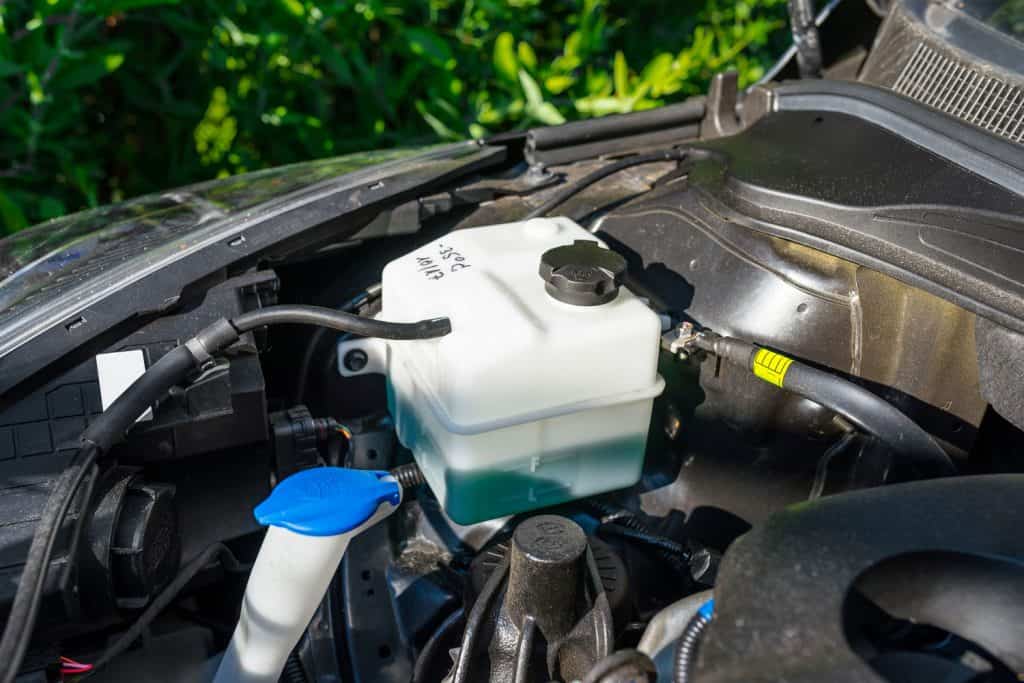
Malfunctioning radiator fan
In addition to engine coolant, a radiator fan is a key component to keeping things from boiling over under your Jeep's hood. If your coolant reservoir is full and you don't see a puddle of coolant beneath your Jeep, the problem could be the fan. One tell-tale sign of the fan being the issue is if your Jeep's air conditioning unit isn't cooling properly.
This can be a pricey fix, as most radiator fan assembly units can cost up words of $800. A mechanic will be able to tell you if the entire assembly needs to be replaced or if it's a simple wiring issue.
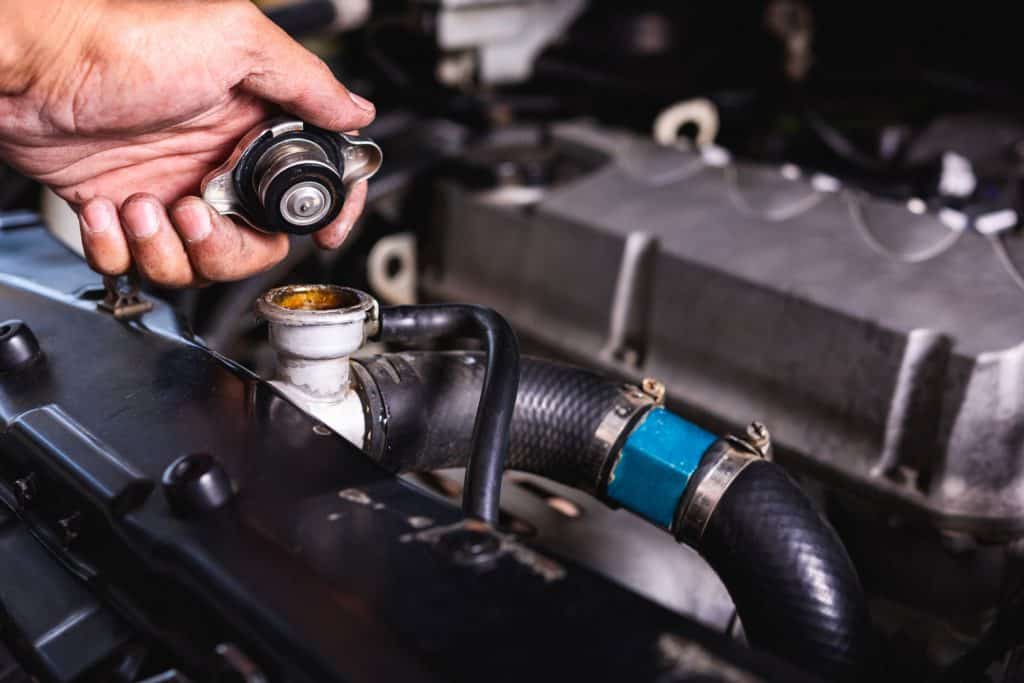
Failing thermostat
The Jeep's thermostat is controlled either mechanically or electronically. If it is functioning properly, it will stay closed and not allow the engine coolant to flow while the engine's temperature is low. Instead, it will open up the coolant lines to allow the engine coolant to flow when the engine begins to get hot.
A failing thermostat that is stuck in the closed position will make your engine run hot. If you are not leaking coolant and your fan is on when you idle, it will most likely be your thermostat. Replacing this part is far less than replacing the fan assembly or the radiator. It generally runs less than two hundred dollars to get this replaced.
How to cool down an overheated engine?
The best way to cool down an overheated engine if you're driving it is to immediately shut off the air conditioner and put the heater on as high as it will go. Doing so will take some of the heat away from your engine. Be sure to roll the windows down if it's hot outside. If there is steam coming out of your hood, wait until it stops before you pop it open to avoid burns. Turn the engine off and let it cool down. This can take up to an hour, depending on how hot the engine is and how high the outdoor temperatures are.
When your engine is sufficiently cooled, check the radiator hoses. If they feel full and hard, it won't be safe to open the radiator cap, as the contents will be under pressure. You'll want to wait until the radiator cap is completely cool to the touch before you open the cap, and only then should you do it with a thick towel while wearing safety goggles.
After everything has cooled down and it's safe to open the radiator cap, you may then add engine coolant. When it's full, start your Jeep and wait to see if the temperature gauge goes back up into the red. If it doesn't, you're ok to drive. If it does, shut off your engine and try again after fifteen minutes. If you can't start the engine without it going into the red, then you'll need to tow your Jeep as you cannot safely drive it.
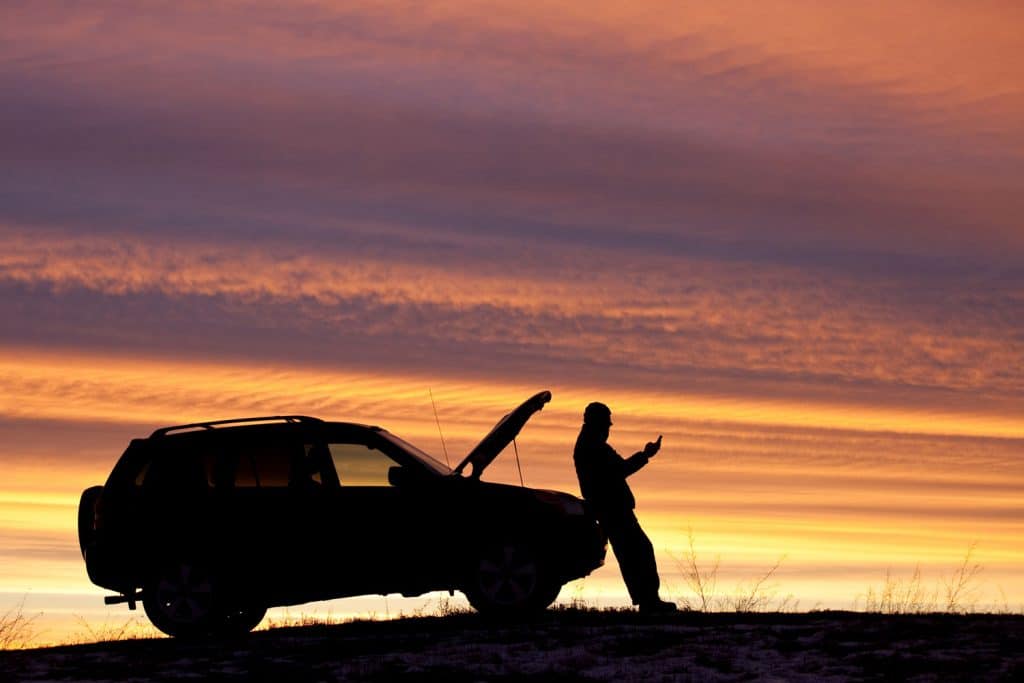
What damage can be done if a car overheats?
Engines are tough but still have limits on how much strain they can take. Too much heat will certainly do damage to not only the engine block but to many of its components. Seals and gaskets that get too hot will crack, causing needed fluids to run out.
The head gasket can also crack. This gasket will expand too much and crack under too much heat and pressure, resulting in water rushing in and filling up your engine's cylinders. This will damage other parts and can be very costly to repair.
If the heat is too high and lasts too long, you will possibly warp your engine's pistons, crack your engine block, or blow out your radiator. Needless to say, the damage that can be done is potentially irreparable.
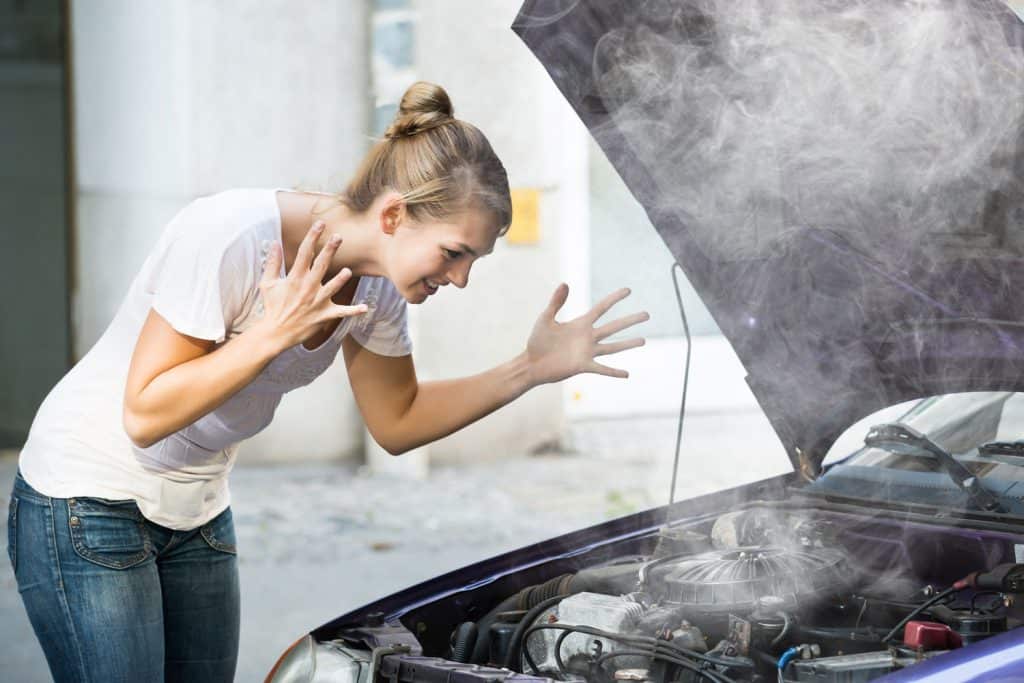
How hot should my Jeep be running?
When it's been running, your Jeep will safely operate at an engine temperature of 195 degrees Fahrenheight. Slight variations in this temperature are common if it's been idling long or if your air conditioner is on.
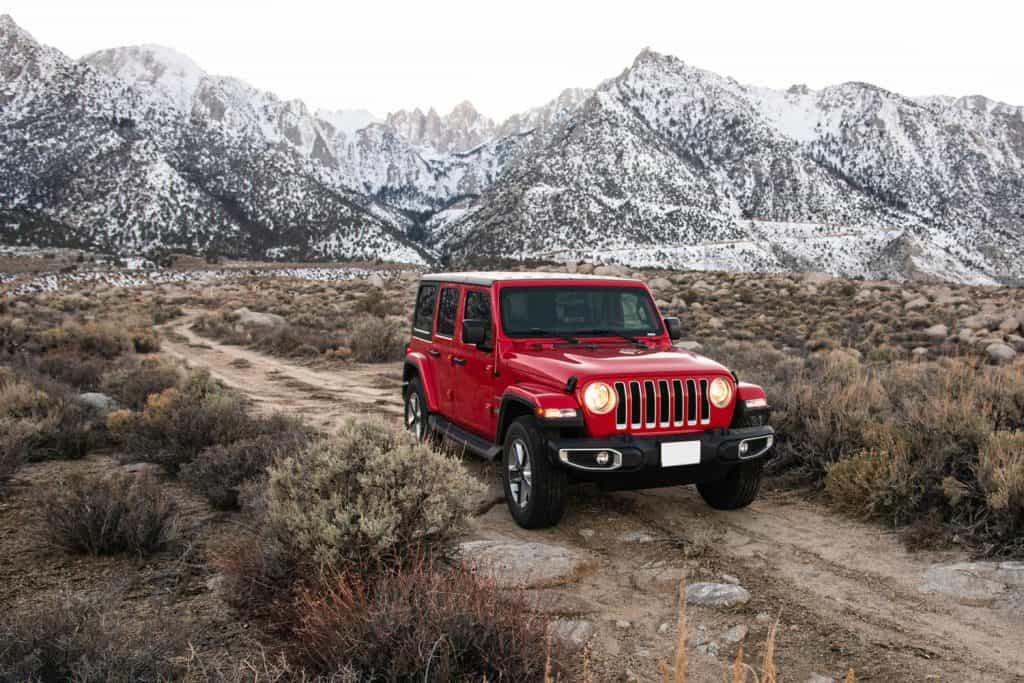
In Conclusion
There are three common reasons why your Jeep will overheat while it's idling. A faulty thermostat, a leak somewhere in the radiator or hoses, or a malfunctioning fan will all contribute to your Jeep running too hot. No matter the cause, you will want to have it remediated immediately before you continue to drive your Jeep. Allowing your Jeep to continually overheat will severely damage your Jeep's engine and other components, resulting in costly repairs.
If you would like to learn more tips regarding Jeeps, you might find the following posts helpful and informative:
Jeep Grand Cherokee Humming Noise When Accelerating – What Could Be Wrong?
How Long Does A Jeep Grand Cherokee Last?
Does Jeep Wrangler Have A V8 Engine?
